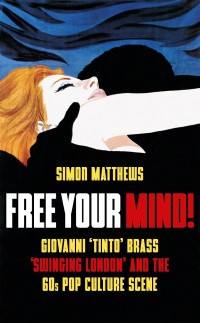SIMON MATTHEWS on the life and death of British Lion Films, the UK’s (sometime) nationalised film company.
Best British film made during the Second World War? Quite possibly In Which We Serve. Best British film of all time? Many candidates, but The Third Man always features. Both were made by British Lion, a studio acquired in 1946 by Alexander Korda, a man whose ability to entertain the masses was considered peerless. Among his many accomplishments were The Private Life of Henry VIII, Things to Come and The Four Feathers, all considerable successes in their day.
Unfortunately, Korda’s lavish productions came with a hefty price-tag. As he said himself: ‘The art of film-making is to come to the brink of bankruptcy and stare it in the face.’ He had failures too and in 1949 the government loaned British Lion £3 million (approximately £315m today) via the National Film Finance Corporation. The decision to do so was made by Harold Wilson, then President of the Board of Trade. An enthusiastic supporter of maintaining a healthy domestic film production industry, Wilson was keen to ensure that UK cinema screens were not dependent on US product.
Sadly, although Korda was sidelined, further loans followed. A noted embarrassment was The Magic Box (1951) an all-star effort with Robert Donat as William Friese-Green, the inventor, back in 1889, of an early motion picture camera. Intended as a riposte to Hollywood, and made as part of the Festival of Britain, it came nowhere near getting its costs back. Other flops included Cry, the Beloved Country (1952) proving that dramas set in early apartheid South Africa were too difficult a sell, and, more curiously, given their on-going popularity, The Story of Gilbert and Sullivan (1954).
Looked at today it was not so much a run of failures (none of the above were actively bad) as a run of slightly lacklustre films that failed to stem the incoming tide of television. The problem British Lion really had was with the simplistic economics of the time. The National Film Finance Corporation was only providing short-term loans, and the recipient, irrespective of the context, was expected to pay these back. Accordingly, when it was announced in June 1954 that British Lion had no prospect of doing so, the government placed the company in receivership.
Control was vested in the National Film Finance Corporation, effectively nationalising it, and day-to-day management was entrusted to five of the UK’s leading film producers: Sidney Gilliat, Frank Launder, John and Roy Boulting and James Woolf. The latter, with his brother John, had produced two immense international hits, The African Queen and Moulin Rouge 1951-1952, both of which had been nominated for, and gone on to win, Academy Awards. He was clearly expected to provide an entrée to Hollywood, and access to finance, whenever British Lion was returned to private ownership.
Which was the plan. Framed as ‘selling it back to the public’, the Churchill and Eden governments – with R.A. Butler as Chancellor of the Exchequer and Peter Thorneycroft as President of the Board of Trade – carried on investing heavily in the company. Under state control, British Lion made an average of eleven or twelve feature films each year, roughly comparable with its preceding period of private ownership. Most of these paid their way, and gave good value to the cinema-going public.
Typical was Launder and Gilliatt’s The Green Man. Released in September 1956, this was about a vacuum-cleaner salesman (George Cole) who stumbles across a plan ‘by certain parties in the Middle East’ to assassinate an unpopular UK politician. The murder itself is handled by Alistair Sim, whose character lives unobtrusively in the suburbs, having previously been (pre-WW1, the peak time for bomb-throwing anarchists), a head master who developed a talent for making explosive devices. The plot develops into a Feydeau-type farce set in a country hotel where the politician has taken his mistress. There is much mistaken identity and wandering in and out of bedrooms.
The cast – a superior repertory company really, with Dora Bryan as the hotel receptionist and Terry-Thomas in typically raffish form – carry this off with aplomb. The stuff about a vacuum cleaner salesman and sinister overseas figures, remind one a bit of Graham Greene’s Our Man in Havanna. Suffice to say Cole is no Guinness, but this is above-average entertainment, like most of the British Lion films made when they were government-owned. Robert Day directed and went on to make Tony Hancock’s The Rebel, before lapsing back into TV.
It is odd to think of this being done whilst Suez unravelled the UK political class. Odd too that Launder and Gilliatt commissioned themselves whilst on the payroll. The concept of conflict of interest was clearly rather different in 1956.
In fact, the quality of the work British Lion did was astonishingly high. Its credits during this period included Lucky Jim, I’m All Right Jack, Expresso Bongo, The Entertainer, The Kitchen, A Taste of Honey, The L-Shaped Room and Lord of the Flies. Thus, the finest satire on UK industrial relations (I’m All Right Jack), the best pre-Beatles rock and roll film (Expresso Bongo) and the most socially controversial of the kitchen-sink dramas (A Taste of Honey) all arrived courtesy of a state-funded production company, created by a Conservative government.
More to the point, this approach made money and paid back most of what was due to the National Film Finance Corporation. Satisfied that its job was done, and without pausing to consider the longer-term implications, the Alec Douglas-Home government quickly agreed to return British Lion to private ownership, despite its clear financial and artistic success. In December 1963 they bought a controlling interest and President of the Board of Trade Edward Heath announced their intentions to the House of Commons on 16 January 1964. British Lion was being sold.
The opposition squared up for a fight, with both Labour (Douglas Jay) and Liberal (Eric Lubbock) advocating that the government should retain a financial stake in the company. They failed. Douglas-Home was less centrist than his predecessors, there was a right wing to placate, and Heath was a busy man, holding down the position of Secretary of State for Industry, Trade and Regional Development as well as his cabinet portfolio and – until recently – heading the failed negotiations to take the UK into the EEC.
In March 1964 the National Film Finance Corporation were paid £1.6 million for British Lion by a syndicate consisting of Launder and Gilliatt, the Boultings, Michael Balcon, Tony Richardson, John Osborne, Joseph Janni, John Schlesinger and Walter Reade. The last was a US producer/distributor who owned a lucrative chain of drive-in cinemas and who was presumably supposed to provide a distribution service for the company’s future product.
The immediate outcome was that British Lion produced fewer films. From 1966 its output, on average, was around two to three a year. After an early post-sale success with Morgan – A Suitable Case for Treatment, they stumbled about with adaptations of Joyce’s Ulysses, which was duly banned in many countries, and Joe Orton’s Loot, which lost a lot of money. Later years were not much better. The Wicker Man, much rated now, passed by then, and after The Man Who Fell to Earth, a critical success that struggled to break even, British Lion ceased to exist, being absorbed by EMI.
With the UK film industry in seriously low gear at this point, the demise of British Lion passed without further political ructions. Indeed, for some on the right, it merely proved that it ‘wasn’t the job of the government’ to fund film production.
It’s a point of view which has been hard to shake off. Looking at the website of the British Film Commission today, reference is made to funding of about £45m being available. Compared with Germany (£329m), let alone France (£1billion), this is chicken-feed. Heath should have listened to the opposition in 1964. More to the point, politicians of whatever stripe since should have noted that other people do things differently. In the meantime, we still have the output of British Lion as a nationalised industry to admire, and can hope, perhaps, to see the like of it again one day.
from the maker of:






